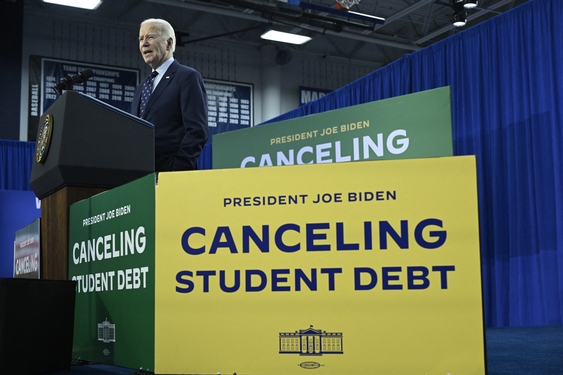As a fledgling pop artist, it’s difficult for him to get radio airplay – especially at a time when "urban music" and hip hop are what top the charts. "In order to get a contract, you have to have been shot 10 times or have a thug reputation," Byrd says.
So Byrd posted his music on GarageBand.com, a San Francisco-based Web site that serves as an online catalog of free music and allows independent artists to distribute their music for free.
Internet music sites like GarageBand.com are becoming a small force in the entertainment world as digital music becomes increasingly popular.
Byrd has had four No. 1 hits on the listener-rated music site, helping him develop a fan base. He has been hired for several gigs and received queries from scouts for major record labels and film directors. And he signed a contract with an independent label.
"You are forced to learn how to market on the Internet," says the former high school teacher.
GarageBand.com started in 1999 as a dot-com that was supposed to be a record label,
but went bust in early 2002. Ali Partovi, whose previous start-up, LinkExchange,
was acquired in 1998 by Microsoft for $265 million, bought the Web site’s
assets. Though he won’t divulge revenues or investment details, Partovi says
he has invested less than $1 million on reviving the operation so far. The company
has four full-time employees and six part-timers. It has been profitable for about
year.
GarageBand.com has more than a half-million registered users, and a catalog of
well over 200,000 songs.
Apple Computer pays GarageBand.com for the rights to use the GarageBand name for its software that is used to record and mix music.
GarageBand.com added podcast technology this spring, allowing artists new ways to reach listeners. Musicians can podcast messages to their fans. Listeners can have music from favorite bands automatically downloaded, or podcast, to their digital music players. And amateur DJs can assemble podcast "radio" shows.
Since the podcast launch, GarageBand.com’s monthly traffic has nearly doubled to about 2 million unique visitors a month, Partovi says.
Earlier this month, GarageBand.com announced an agreement with radio conglomerate Clear Channel to have 50 of its artists featured on Clear Channel’s online radio stations every quarter.
"A lot of the trends are in place for a revolution in music, and especially how music is discovered and promoted," says Partovi, 32, who once dreamed of being in a rock band. "Anyone under 25 is not buying CDs. They are downloading them from the Internet and listening to them on an iPod."
The San Francisco music site has star backing. Jerry Harrison, the Harvard-educated former guitarist for the Talking Heads, is the company’s chairman.
The Internet "writes some new rules" for the music industry, Harrison
says.
George Martin, who signed the Beatles to their first record contract because he
liked their impish humor, is chairman of the company’s advisory board.
It’s becoming more common to use the Internet as a marketer for musicians. MP3.com was among the first to distribute independent music online. Services like The Orchard and the Independent Online Distribution Alliance give smaller, independent music labels the ability to sell songs through iTunes, Napster and eMusic. And Warner Music Group is launching an "e-label" this fall.
GarageBand.com organizes its music by genre and ratings, from ambient to punk pop and world fusion. Artists who agree to review other bands can post their music for free. Others can skip the reviews for a fee.
College and Internet radio stations pull music from GarageBand.com, as do Internet radio stations. In an agreement with Microsoft, the top GarageBand artists are featured and sold on MSN Music. GarageBand has also placed some of its popular artists on Apple’s iTunes digital music Web site.
GarageBand.com’s podcasts, in which independent DJs create a following through their creative playlists, is "what radio used to be," says Tamara Conniff, executive editor of Billboard magazine. "You’d listen to a DJ you related to and he would play cool new music. Radio is not like that anymore."
© 2005, San Jose Mercury News (San Jose, Calif.).
Distributed by Knight Ridder/Tribune Information Services.



